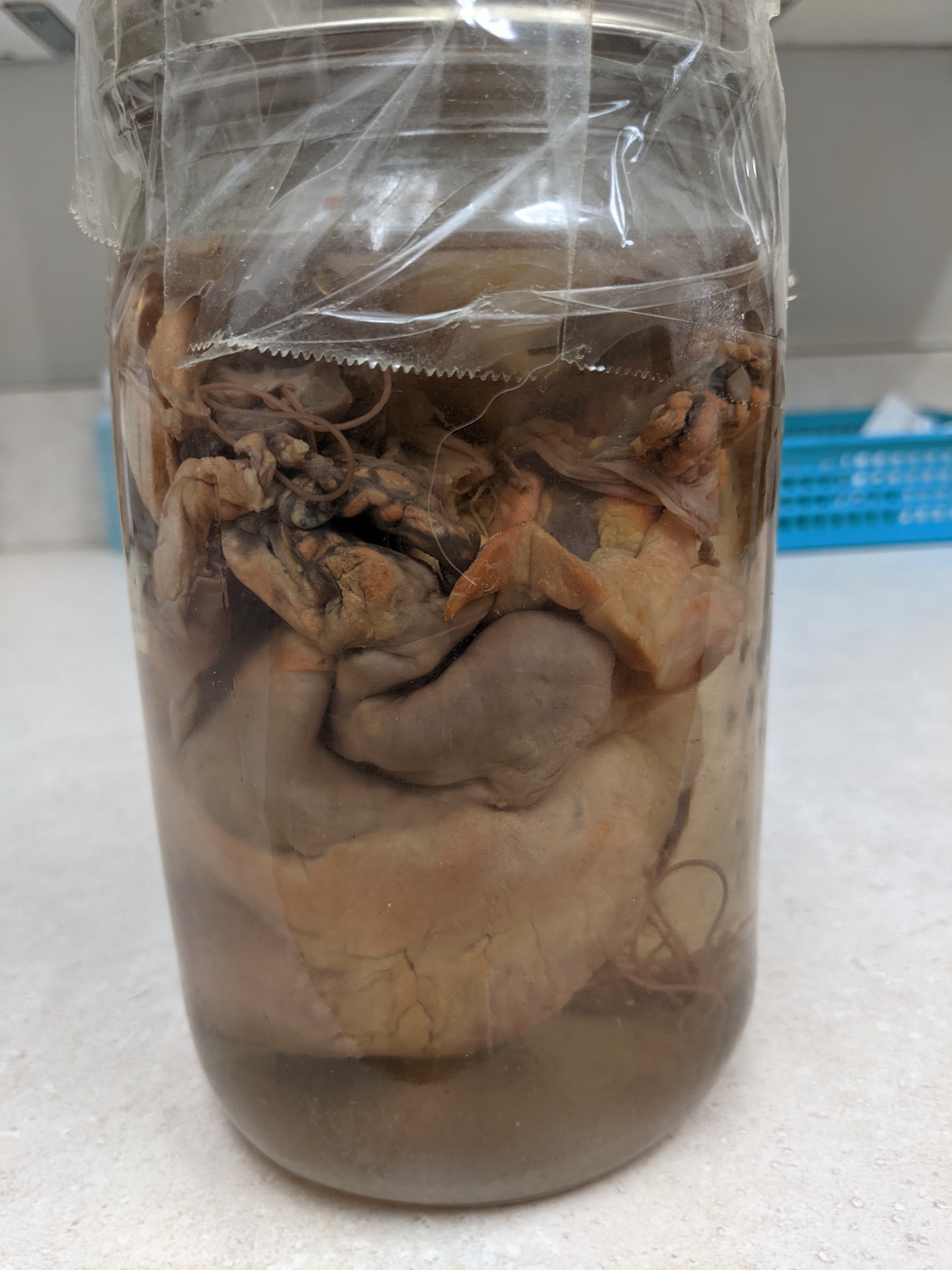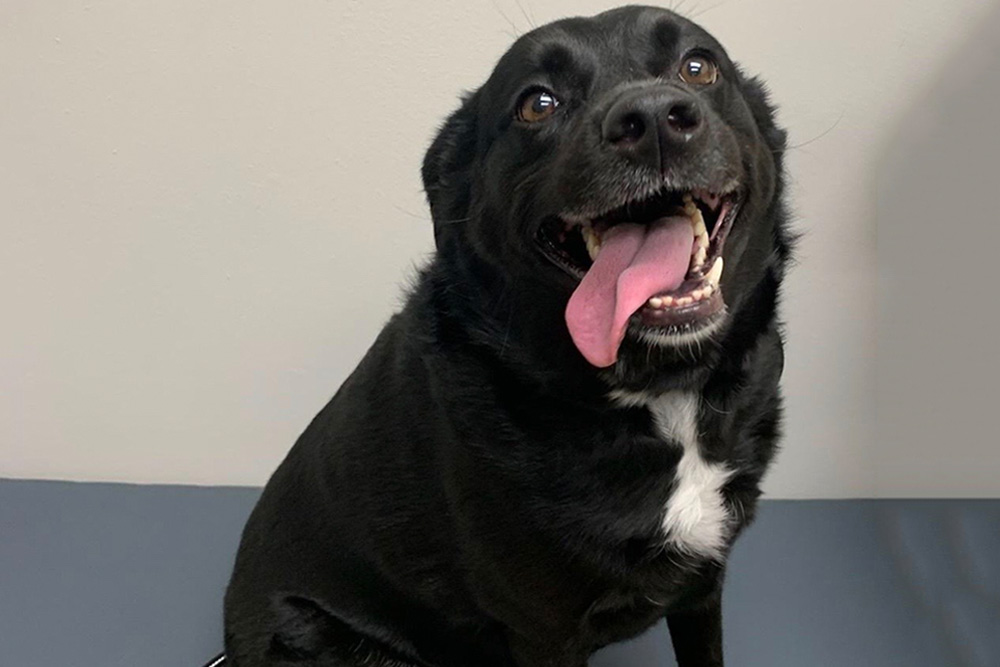After many long months of heartworm treatment, Vinnie is now disease-free and able to be his silly self again.
Vinnie is a lucky dog. He was a little older than a year when he visited Dr. Michelle McDonough for a checkup in 2021. Outwardly, he appeared to be a normal, sweet, curious and busy young pooch. Inside the handsome retriever mix, though, his body was telling a different story.
As part of Vinnie’s annual exam, Dr. Michelle conducted a heartworm screening. When the results came back, they showed Vinnie had an adult heartworm infection. “Vinnie was especially lucky, because he hadn’t shown any symptoms. We caught it early just through routine care,” said McDonough.
“Sometimes, when the condition is more advanced, the dog might lose its appetite and lose weight. It might have a mild, chronic cough, and it might stop being interested in exercise,” she said. “The dog could also experience disproportionate fatigue after moderate activity.”

Once heartworms mature and reach the heart, they take up residence in the pulmonary artery. The parasites can live for several years inside their hosts. They resemble cooked angel-hair pasta in appearance. Males can be up to six inches long, and females can grow up to a foot long.
Dogs get heartworm from infected mosquitoes, which pass larvae on to the pet. After several months, the larvae become adult heartworms and make their home in the animal’s heart and pulmonary artery. “Some heartworms are up to 12 inches long, so they don’t leave much room for the heart to work properly,” said McDonough. While the worms are expanding their home in the heart, they are producing microfilaria – the embryonic stage of development. The microfilaria live in the bloodstream until they can be picked up by another mosquito. They then continue their lifecycle and go on to infect another dog.
Treating the disease is challenging for the pet and for the owners. Because the worms are compromising the heart’s health and ability to pump properly, the dog must remain quite sedentary during treatment. “You can’t just take the dog for long walks, play fetch or do anything else that causes the heart to pump harder,” said McDonough. “Some dogs remain mostly crated for the months of their treatment. It’s really rough on everyone.”
Eventually, the medicine kills the worms in the heart, and the dog’s body breaks down and eliminates the parasitic infestation. Veterinarians can’t confirm a complete resolution to the infection for nine months. The entire process is long and difficult for the dogs and their families. Vinnie got his clean bill of health on March 27, 2022, much to the delight of his family and the Greendale Village Vet family that orchestrated all of his care.
Some people wonder whether cats are also susceptible to heartworm. Although they can become infected, it’s a far less common problem than it is with dogs. The symptoms aren’t always as obvious in cats, and they often go undiagnosed. Cats might cough, vomit from time to time, lose their appetite and drop weight, and they may have what seems like asthma attacks. Some cats may experience bloated bellies caused by fluid buildup, and they might not be steady on their feet. They could faint or have seizures. In the worst cases, they have sudden death.
“Wisconsin has a significant mosquito population, so heartworm disease is found throughout the state,” said McDonough. “Because of that, pet owners need to take preventive steps. The two best ways to ensure a dog remains safe from the disease is by giving them heartworm prevention every month, 12 months of the year, and having them screened once a year.”
She noted that even though mosquitoes are not common in the winter months, they are still around, so it is unwise to be complacent about administering precautionary medications. “These medications also protect them against intestinal parasites that they can pick up all year round,” she said.
For more information about heartworm, visit heartwormsociety.org. To make an appointment with a veterinarian at Greendale Village Vet, call 414-421-1800.:







Leave A Comment